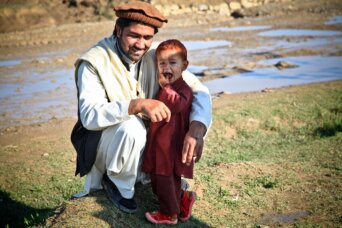- About
- Topics
- Story
- In-Depth
- Picks
- Opinion
- News
- Donate
- Signup for our newsletterOur Editors' Best Picks.Send
Read, Debate: Engage.
| topic: | Sustainable Development |
|---|---|
| located: | Afghanistan |
| editor: | Shadi Khan Saif |
It remains an established fact that promoting charity alongside plans to create new dignified jobs would only perpetuate a dependency syndrome in any society.
It is thus beyond understanding why the Afghan government would launch a multi-million dollar 'food charity' drive when it has already launched another rather admirable project to create thousands of jobs.
There is absolutely nothing wrong in handing over packs of basic food items to the vulnerable and those most in need within a war-ravaged country, with some 90 per cent of the population living below the poverty line, according to its president, Mohammed Ashraf Ghani.
The argument here is that the state machinery and its mighty international partners should have by now chalked and initiated scores of new jobs and population engaging projects of micro and even mega level that would have helped those in need earn their livelihood with pride while contributing to the building of the nation.
The $200 million earmarked for this ‘National Food Table’ idea seems like a politically inspired decision out of a knee-jerk approach instead of taking into account the long-term consequences of promoting charity.
The rather admirable project mentioned above initiated by the Afghan government is inspired by the Civilian Conservation Corps of the 30s in the U.S. at the time of the Great Depression. Thousands of men have been engaged in the capital Kabul to dig trenches for preserving rainwater as well as planting trees on the barren hills surrounding the historic capital city.
Now, that idea could have been expanded, modified to the tunes of local culture and demography to do the wonders of economic uplift, job creation and above all reviving the spirit of self-reliance in the heavily dependent nation.
It is not a daunting task of the likes of invention, but a simple study through existing state institutions on the demographics on a provincial level to assess both the public need for services as well as available human force, especially women willing and able to work.
With a strong sense of ownership, the locals are now made to queue for charity shall proudly roll up their sleeves in different community projects made for them, such helping build and rebuild roads, canals and bridges as well as extending helping hands to the frontline health workers fighting the coronavirus pandemic or indeed uplifting schools, parks and establishing new and innovative markets for value-added agriculture products and handicrafts.
Image by Amber Clay

